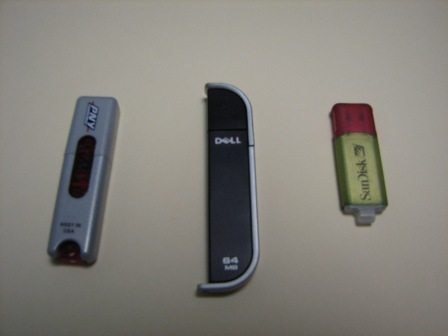Stephen D. Rogers: The Outsider On The Inside
Stephen D. Rogers is a published writer of fantasy, horror, literary, mystery, personal essays, romance, and science fiction. A participant in the Fairfield University Writer’s Institute of 1989, the Bread Loaf conference of 1994, and Robert McKee’s STORY seminar, Stephen is the director of the non-profit literacy organization Literature Is For Everybody, Incorporated. He lives with his wife and daughter in Massachusetts, USA.
Over five hundred of Stephen’s stories and poems have been selected to appear in more than two hundred publications, earning among other honors two “Best of Soft SF” winners, a Derringer (and five additional nominations), two “Notable Online Stories” from storySouth’s Million Writers Award, honorable mention in “The Year’s Best Fantasy and Horror,” mention in “The Best American Mystery Stories,” and numerous Readers’ Choice awards.
Stephen is a proud member of the Mystery Writers of America, the Private Eye Writers of America, Sisters in Crime, and the Short Mystery Fiction Society. Other memberships include Mensa, the National SCRABBLE® Association, and the South Shore Writers Group.
Stephen D. Rogers:
THE OUTSIDER ON THE INSIDE
When I tell people I’m a civilian employee at a municipal police department, they usually say that must be great for the writing.
Well, yes … and no.
THE COMPUTER GUY
Working within a police department (and I’ve worked in two), I’ve gained some level of admittance to a closed culture. I’ve seen how officers act both while they’re doing their jobs and when they’re unwinding after the shift is complete.
The thing is, thanks to training and on-the-job experience, police officers always scan for threats.
The person with the busted taillight might actually be fleeing the site of an armed robbery. The helpless victim might suddenly attack the officer trying to restrain the alleged offender. The concerned citizen might have an agenda.
Most of the people they talk to lie. Most of the people they encounter are, shall we say, not on their best behavior.
Who’s to say the civilian computer guy is any different? Is he another wannabe cop? Is he using them and their experiences for creative fodder? Is he going to make them look bad?
The questions are valid and understandable.
One way I address the issue is to not be a writer at work. I’m being paid to maintain and improve the station’s hardware and software infrastructures, and that’s what I do.
In the three years I’ve been at my current position, I’ve only “conducted research” once, asking a detective how they interfaced with state police on homicides. I was upfront at the time, telling him why I was asking, and even did so in a stairwell to further separate the discussion from our normal duties.
Which brings up a very important point. When talking with police officers, don’t lie. Not only will you probably fail to fool them, you’ll destroy any possibility of trust.
THINGS I’VE LEARNED
I’ll start with the subject of my lone research project, how the local department works with state police on homicides. For the most part, they work together well. As they do with the ATF, DEA, FBI, and other local departments. After all, they’re on the same team.
I don’t even sense any frustration with the court system, with the judges, juries, and defense attorneys who sometimes undo the officer’s best efforts.
Which segues into professionalism. Police officers don’t allow themselves to be swayed by sob stories because to do so would open the door to being unprofessional. Police officers follow standard operating procedures in order to provide fair and dispassionate service. Police officers are there to do a job.
This is why I say working at a police department doesn’t help me all that much with my writing. Where’s the conflict? Where’s the tension? The reality seems to be that police officers are simply highly trained professionals doing a job that just might turn life threatening at any moment.
Another point that’s become obvious over time is that most of the people brought into the station with hands cuffed behind their backs are not criminal masterminds. They either broke laws in order to take a shortcut or they live a fringe existence. They’re not trading quips as much as they’re crying or trying to grasp the idea that they didn’t get away with it.
If my door is open when I’m standing at the network servers, I can reach out and touch the person cuffed to the bench. The cells are only a dozen feet beyond that. When people yell or wail or weep, the sound cuts right through my closed door. And let’s not even mention the drunken singing.

My desk – it’s a crime.
From my doorway, you can see the cuffs on the right, breathalyzer rear left, and cells beyond.
THINGS I’VE BEEN SHOCKED TO LEARN
While anyone who’s worked in business will tell you that sales never talks to marketing never talks to manufacturing, and anyone who’s worked in education will tell you that administration never talks to faculty never talks to staff, anyone who’s worked in law enforcement might wonder what those people are complaining about since lack of information on the streets can directly impact officer safety.
And yet it continues. Our department is very lucky. The software we use allows sharing of information among a group of local departments, and the Chiefs in those departments support that sharing of information. There’s a nearby group of communities where none of the Chiefs want anybody else to have access to their information.
My suggestion to the people trying to address that issue was to remind their Chiefs that criminals no longer stay within town boundaries, that everything changed when they invented the horse.
I’m not sure that helped.
THINGS I STILL HAVEN’T LEARNED
I honestly don’t know why anybody would want to be a police officer.
I haven’t yet come to terms with the fact that police officers aren’t held in higher regard.
I can’t believe neither of the police stations where I worked boasted coffee makers, coffee vending machines, or coffee shops. Don’t these people watch television and movies?
FROM THE INSIDE
A police department is a 24-7 operation. Any time that I schedule backups is inconvenient because it slows network response time.

The modem that allows the vehicles laptops to reach the station.
Nights and weekends are not the usual obvious windows for system maintenance because things can even be hotter during those periods. I’ve come in at 3am and then waited an hour for dispatch to slow enough that I could reboot a server.

The best tool around, bar none.
While configuring a laptop, it is not unusual to see an officer running towards the vehicle and — no — the officer can’t wait for the next two steps and a reboot.
Software that adds ten seconds to bootup may not be critically significant in an office setting, but it can be in an emergency situation. A slower workstation equals more time spent entering reports and thus either less time on patrol or hits against the overtime budget.
Technology is wonderful when it works, and frustrating when it doesn’t. In law enforcement, a technical glitch can be enough to let the bad guy get away.

Buy a USB drive and backup your files.
The line separating what can be done and what will be done is a matter of money, the budget determined by people who may have no appreciation of the singular needs of law enforcement.
THE INSIDE SCOOP
I generate the public logs, which means I see them seconds before I post them to the internet.
You can’t buy that kind of access.






Hey Lynn,
That would be especially effective if we could record in stench-o-rama.
Maybe include one of those fragrance trees: Lock-Up.
Stephen
Some great insight, thanks. One thought: maybe you should record a month of two of the drunken singing, cut a CD with the best ones, and market it as a “stay out of jail” reminder. Jail accomodations will suck, everyone already assumes that. But nobody ever thinks about being subjected to the singing. Be like a water-drip-on-the-forehead torture!
Hey Allison,
Actually, I think about a quarter of my sales are poems.
But you keep plugging away that those novel thingees. Call me crazy, but I have a feeling they might someday eclipse short stories.
Stephen
Great info! Thanks for sharing. I am amazed, really, that you have written and published over 500 short stories. For me, the short story is as hard to write as a full length novel!
Stephen,
Love it, nothings really changed 🙂
Thanks – best wishes on the play, as Bobby said, it’s a trip of a different sort.
Hey Bobby M,
Thanks, but unfortunately I won’t be able to attend the performances. I’m pretty sure there’s a DVD planned, so at least I can catch it that way.
Stephen
Interesting stuff, Stephen. Thanks for the insight. Also, congratulations with the play. I had a play produced some years ago, and I have to tell you, there’s nothing quite like seeing characters that you created having life breathed into them by actors.
Hey Lee,
And pretty soon I’m going to be a produced playwright. I just heard this morning that LADIES MAN will be performed June 13-14 at the New Workshop Theater. So that’s pretty exciting, even if it’s not a mystery. 🙂
Stephen
Hey D. Swords,
Almost half of what I’ve sold are mysteries. Some are based on the departments I’ve worked in terms of department size and structure. I never fictionalize actual officers or incidents, but sometimes have the physical layouts in mind as I’m writing.
Stephen
By the way, Stephen is the vice-president of the New England chapter of Mystery Writers of America. He’s the guy who keeps our website current and, he writes our newsletter. You can also find some of Stephen’s 6 word stories (that’s right, a complete story in 6 words) on SJ Rozan’s website. He’s a busy guy.
Hey Elena,
There are officers who are lost when a laptop goes down since they can’t run plates as easily.
There are officers who complain when the laptop gets taken out of the vehicle to be repaired since they now no longer have a flat surface to eat off of.
Either way, the computer’s a tool. 🙂
Stephen
Hi, Stephen,
I couldn’t relly tell from your bio, but do you write police/detective stories, and are they loosely based on the departments where you work?
Thank you Stephen, it is ever so much fun to have a view from another area of a cop shop. And, you are so right about the paper clips, hair pins work well too, but they are hard to find. And, I don’t think it’s possible to say “backup your files” too many times.
I worked in the cop shop of a major city, and can assure you, that while the professionalism was as you described, it had it’s full share of drama, tension, and blowing off steam in their own inimitable way. But, that was at the very beginnings of widespread use of computers.
From what you wrote it would seem that the now ubiquitous computer may have changed cop shop culture. An interesting avenue to explore.
Do you have any sense of that?